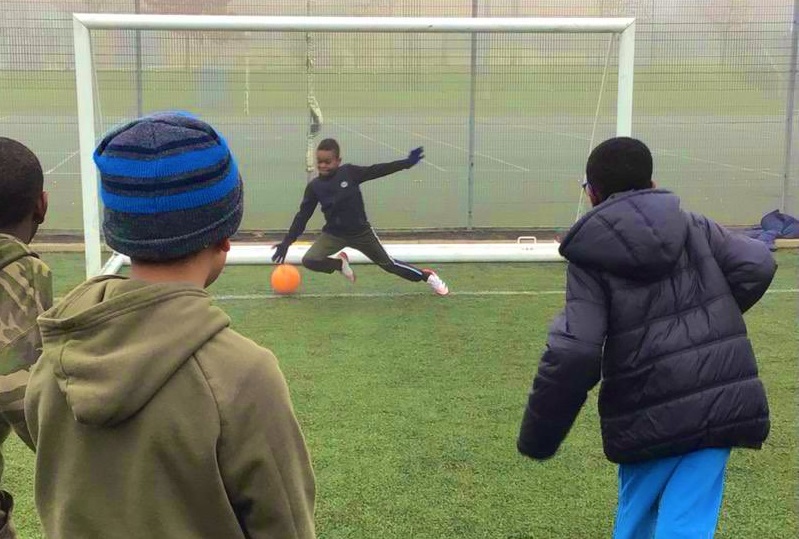As part of our focus on safeguarding throughout January, we asked Nikki Miles what the process looks like at our specialist partners Positive Youth Foundation in Coventry.
Positive Youth Foundation work with young people and organisations in Coventry to raise aspirations and achieve positive outcomes – with sport taking its place among a vibrant mix of art, music, leadership opportunities, social action and employment programmes.
Positive Youth Foundation (PYF) is described by its patron Sir John Egan as “a good warm hug” for some of the city’s “most challenged youngsters”. Effective safeguarding lies at the centre of this safe, supportive environment.
All delivery staff are fully trained in safeguarding and their knowledge is refreshed regularly to ensure procedures and best practice are fully understood and up to date. Part of that training is to equip each staff member with the ability to be vigilant for key signs that may reveal a young person to be at risk or experiencing a safeguarding issue. Those signs can take many different forms.
“A young person might come to a session in a brand new tracksuit or the latest Air Jordan trainers –because we know them well, we might notice that that’s unusual and it could potentially be a warning sign,” says Nikki Miles, PYF’s Programmes Lead for Physical Activity and Sport.
“You might have someone who is usually excited and energetic and the next week is a bit quiet and shy and doesn’t get involved. Their body language and facial expressions might be different or they may say something that triggers you. Of course, they might just be tired or have exams, but it might be a warning sign.
“You might observe how they greet you and notice something is not quite right, leave them for the first hour and see how they get on, then say, ‘Can we have a quick chat? How has your week been?’ We offer one-to-one support and the kind of open, honest conversation they might not have access to at home.
“In all these scenarios it’s about being very observant. If they have bruises or cuts, or they have turned up without lunch or they haven’t been engaging on WhatsApp when they used to, your instinct must be 'fear first’ and to think of the worst-case scenario.”
PYF are a hugely valued Levelling the Playing Field specialist partner whose dedicated LtPF community football session takes place every Saturday morning. They are dedicated to helping us achieve our common goals:
- Increase the number of ethnically diverse children taking part in sport and physical activity
- Prevent and divert ethnically diverse children from becoming involved in the Criminal Justice System

PYF have over many years fostered an environment on all their programmes where young people feel comfortable and safe and their voices are heard. This encourages them to share any issues more readily than when they are at home or school.
Part of PYF’s staff training is about asking difficult questions to encourage a young person to open up, whilst also being honest and admitting that any serious disclosure will have to be reported and may need to be escalated.
“We can’t say to a young person that we will keep their secret,” says Nikki. “We have to very honest about that and generally young people totally understand. They might not want anything to be reported, but that in itself is a warning sign. It shows there is something which that young person doesn’t feel comfortable with.”
Once an individual has made an ‘immediate’ disclosure, it is referred to PYF’s Designated Safeguarding Lead (DSL) Susie Murphy and may be referred on to agencies such as the police or social care. If it is judged to be less serious and it is ascertained that the young person is safe from harm, it will be logged and reported in the system. “Anything that is disclosed must be reported,” explains Nikki. “It may just sit in a document for months, but if something else happens, we may be able to identify patterns that prove to be concerning later down the line. That’s why our reporting system exists.”
The formal processes and protocols are vital, but the foundations of it all are an environment and a team of staff which fosters good relationships with each young person. Without staff who are approachable and empathetic, young people will not feel comfortable enough to unburden themselves of their troubles. If staff don’t know each young person well, they won’t be able to spot small (but perhaps significant) changes in behaviour or mindset.
As Nikki concludes: “Training is so important and opens your eyes to what’s really going on in the community and the world. Refreshing and enhancing our safeguarding knowledge is vital as we all forget things, or get to a certain age and get stagnant and think we know it all.
 “However, I do believe it often simply comes down to you as a human. When something doesn’t sit right with you, you can feel it. I always say to my staff, if you have one slight feeling, regardless of how small it is, you need to report it. Those instincts are fundamental to carrying out good safeguarding practice.”
“However, I do believe it often simply comes down to you as a human. When something doesn’t sit right with you, you can feel it. I always say to my staff, if you have one slight feeling, regardless of how small it is, you need to report it. Those instincts are fundamental to carrying out good safeguarding practice.”


